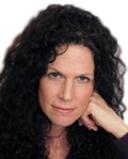Adoption
Adoption and Class Differences
How can adoptive parents cross class boundaries more gracefully?
Posted May 24, 2014
In this post, E. Kay Trimberger, a professor at Sonoma State University, addresses the question: How can adoptive parents cross class boundaries more gracefully?
As a result of my inability to cross social class boundaries, my adopted son in his early twenties taunted me by saying, “You’re not a racist, but you’re a classist.”
Before adopting a mixed-race, black boy at infancy who is now thirty-three, I always led a solidly middle-class existence, both in growing up and as an adult. My extended family, my friends and my colleagues were also white and middle class - not rich, but certainly not poor. My only black friend was a colleague who lived fifty miles away and had children who were much older than my son. Berkeley, California where I live, and my neighborhood on the flats in south Berkeley where I moved when my son was four, are mixed race and mixed class. But I never crossed the invisible race and class boundaries.
By the time he was twelve, my extroverted son made friends with boys and then with girls from families very different from mine. He was friends briefly with a few rich white kids from the hills and suburbs, with whom he, as well as I, felt uncomfortable. He made many more friends with blacks and ethnic minorities from more marginal class backgrounds, many with disrupted families. I never criticized my son’s choice of friends and usually welcomed them into our home, but rarely did I get to know their parents or visit their houses. I didn’t know how to relate to people who lived in small, cramped apartments, whose incomes were irregular and precarious, who sometimes didn’t have any food in the house, who didn’t have regular meal times together, and who had family members who were in jail and/or drug users.
In retrospect, I wish I had tried to reach out to some of these parents and to find individuals to whom I could forge a personal connection. In so doing, I might have prevented the worlds divided by race and class in which my son and I now live, amicably but separately.
I helped my son at age twenty-five find his white birth mother and black birth father, who were welcoming to him and to me. They introduced him to half-siblings, all of whom were biracial, and to extended family members. The birth mother invited him to live with her for some months in Louisiana. Two years after this reunion, I accepted his invitation to visit and meet these families. Later, after my son had returned to California, I went by myself again to visit his relatives on both the white and black side. In reunion with these birth families, I was able to cross class boundaries. The key was finding Individuals with personal qualities that I liked and to whom I could respond, despite economic and life style differences.
I like his birth mother, who lives in a trailer, has only a high school education, works as a sales women and has addiction problems. (I am a tenured professor with a Ph.D. who owns my own home.) She is open and accepting and did a good job raising her other children. I appreciate her extended white family who accepted, and helped raise, her biracial children. I became friends with the black woman who recently married his birth father. She is warm and responsible and invited my son to live with them for awhile. Through her, I relate to the birth father, who is reticent and who has been in and out of jail most of his life for petty crimes related to drugs. The wife initiated an e-mail correspondence and occasional phone calls with me. Sometimes, I now take the initiative. We confide our similar problems with husband and son. Recently, she called to tell me about some health problems my son faced here in Oakland, ones that I knew nothing about but which he had confided to his Louisiana sister.
Any parent may face the issue of a child becoming friends with children from a different social class (higher or lower) with lifestyles with which they are unfamiliar or uncomfortable. This may be especially true in communities that are racially, ethnically and economically diverse. But adoptive parents are more likely to face this issue. In both domestic and international adoptions, parents who adopt are usually more affluent than birth families. In open adoptions there may be considerable contact with biological parents and their extended families with class differences. Even in closed adoptions where there is little information about the birth parents, adoptees may actively seek out friends from lower economic classes. They may do this as a way to form an identity, because there is less pressure to achieve, and/or because their interests and abilities have a genetic component. (See article Adoption and Genetics: Implications for Adoptive Parents.)
I hope that adoption educators and post adoption support groups will address the topic of class differences in adoption and provide a space for adoptive parents to talk about these issues.
__
Sociologist E. Kay Trimberger is writing a book tentatively titled, Creole Son: An Adoptive Mother’s Story of Nurture and Nature. You can reach her through her web site: www.ekaytrimberger.com or by e-mail at trimberg@sonoma.edu


